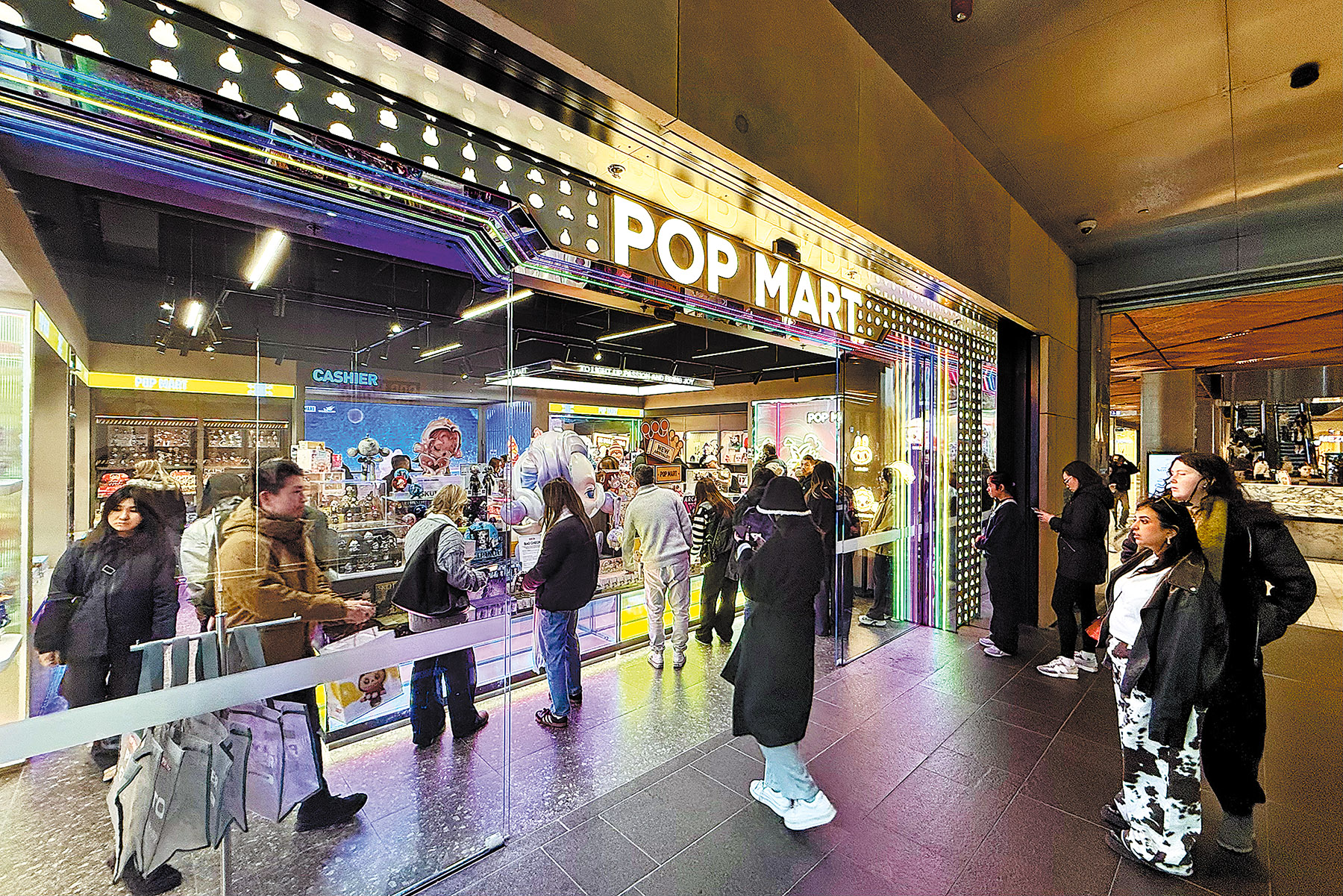Sales boom for quirky Labubu dolls, showcasing nation’s cultural power

Australian consumers, young and old, have been seen in long lines at stores for a Chinese company’s plush “Labubu” collectibles, joining a global rush for the elf-like toys that have become the latest markers of growing interest in Chinese culture globally.
The small furry dolls, featuring quirky monster characters from toy retailer Pop Mart, have drawn crowds to stores in Sydney, Melbourne and Brisbane, underscoring a cultural phenomenon that has swept several markets globally, including the United Arab Emirates.
Sydney resident Rita Leong, a collectibles enthusiast, attributed the recent popularity of the dolls to their appealing design.
“This is the first time I’ve seen people lining up in Sydney to get their hands on Chinese designer toys,” she said.
Leong said her two children, aged 18 and 21, are also big fans of Labubu. “Each time we visit a store, we usually spend between A$50 ($33) and A$200. So far, we’ve probably spent around A$3,000 in total on the toys,” she said.
A key factor behind Labubu’s popularity is its use of the blind box format, which creates a “lottery-like” thrill, Leong said.
Wei Li, a senior lecturer in international business at the University of Sydney Business School, told China Daily that Labubu products are popular because “they have successfully combined psychological stimulation, social interaction, and smart commercial design.”
“These toys also have a strong social aspect, as celebrities and fans trade and showcase rare editions over social media, forming a sense of identity and belonging within collector communities,” she said.
“It’s a formula that combines fun, culture, and commerce — and it works globally,” said Li, who researches the globalization of Chinese enterprises.
Beijing-based Pop Mart, which is listed on the Hong Kong Stock Exchange, announced in March strong 2024 results, with revenue up 106.9 percent at 13 billion yuan ($1.8 billion) and net profit rising 185.9 percent to 3.4 billion yuan, driven by the plush toy category and overseas market expansion.
Li from the University of Sydney said the broad appeal of the Labubu toys reflects a universal consumer interest in storytelling, character design, and emotional connection.
Jeff Zhang, a Hong Kong-based equity analyst for investment research firm Morningstar, told China Daily that key growth drivers of Pop Mart “remain the robust pop toy sales of the new Labubu series and other IPs across the globe, particularly in North America, Europe, and Southeast Asia”.
In the UAE, too, Labubu products have become a must-have accessory, especially among millennial buyers and influencers, with the price for one doll reaching up to $95 on authorized websites.
In Dubai and Abu Dhabi, fans are even forming communities, trading figures, and sharing unboxings and display setups online.
“I just love how quirky and cute they are!” said a Dubai-based influencer in a social media post showcasing her growing collection.
Lana Kamel, a local teenager in Dubai, said she enjoys the excitement of opening a Labubu blind box. “It’s all about surprise. The box doesn’t reveal which design or color you will get. You don’t choose the Labubu, the Labubu chooses you,” she said at a Mall of the Emirates store on June 14.
Hassan Tamimi, CEO of The Little Things, the UAE’s official Pop Mart retailer, told Arab News that “Labubu has become more than a collectible”. “It’s a lifestyle statement. We’re seeing people pair them with luxury handbags, sports cars, even use them in wedding shoots,” he said.
Prime Sarmiento in Hong Kong contributed to this story.
Contact the writers at xinxin@chinadaily.com.cn


